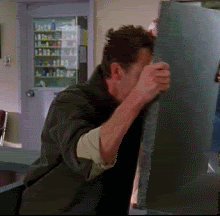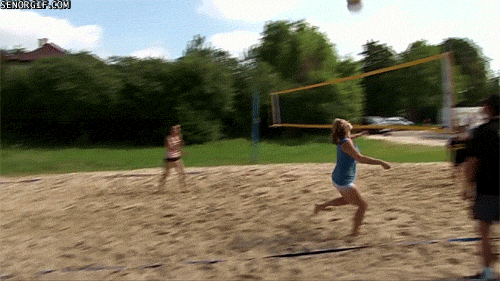Coping - Control What You Can Control
- Isaiah D.
- Jan 14, 2020
- 6 min read
Player Intro
Thank you to everyone for the feedback on our previous interview with Matt Pieczarka, and big shout out to him for his work on vertical jump, and sharing some of that wisdom with us! Be sure to follow him on Instagram for more great content.
As always, please subscribe to our blog for more interviews from all levels of sport and competition, and leave a comment to let us know who to interview next.
Like Matt, I've had a long-term goal to be able to bring a basketball up to a height at least a few inches above 10 feet and be able to slam it into the hoop. Anyone who has trained with me knows that my main goal for a couple years has been to jump higher, with the end goal of being able to dunk.
They also know that I'm 5'7".
I've tried different training methods and strategies, including plyometrics, building a greater strength base, and altering my jump technique, to jump a couple precious inches higher.
Out of all of these different strategies, I've joined different social groups that discuss training methods and tips for gaining inches on our vertical leap. In all those forums, however, I've never seen anyone asking "How do I just grow an extra six inches taller?" That'd be the easiest way to reach our goal, but is just not something we can control.
Gameplan
Sports are a great way to quickly discover our physical and character limits. For instance, how high can I jump before gravity takes control over my body again? Or character-wise, how many mistakes can my teammate make before my temper gives out? At some point, unwillingness to accept these boundaries, or inability to push these boundaries farther, leads to frustration with myself, my team, and/or the sport.

Freshman year of college was a rough season of JV Basketball. Almost all of our games were against junior colleges; their rosters were filled with talented and extremely athletic players. Our matchups were often against guys a lot taller, quicker, and bigger than us. We got dunked on a lot. We were unable to score for multiple minutes at a time. We ended games down 50 or more. It was embarrassing and frustrating, especially for teammates who were used to playing more competitively, and not used to losing by these absurd numbers.
Halftime and postgame locker rooms were ugly. Teammates would either be silent or yelling at coaches or at each other. It was hard to bounce back from such lopsided games. We had all come up against a collective barrier of talent and athleticism that we couldn't seem to break through.
Our freshman year coach drilled into us: "control what you can control," in practice and after these demoralizing losses. It was on us how to respond to these types of games. We couldn't change our schedule; we had no control over the talent and athletic ability of our opponents. What we could control was our attitude on the court, and our willingness to execute the gameplan and support our teammates.
Control what you can control

So what does this all mean for me wanting to dunk? Losing by 50 every week doesn't initially connect with me wanting to jump high enough to throw down, but both situations are lessons in accepting some barriers and attempting to push the limits of a situation. Just like I couldn't do anything about the talent disparities in our games, I also didn't get to decide how tall I grew, or what type of natural athleticism I was born with.
In the end, I got to decide how I responded to these situations. Instead of becoming frustrated and feeling powerless, sports have taught me to find strategies to push those boundaries so that my limitations are stretched each time. That way, those limits get pushed farther out each time I work on what I can control: my effort, my time, and my sacrifice.
Playing defense, for example, is the quintessential lesson in learning to control only what you can; pros interviewed about their defense on star players always tend to say that the James Hardens, Lebron James's, and Steph Currys of the world will get their points, but that the defender's job is to make those points as difficult as possible. Trying to keep elite players from scoring is an exercise in futility and frustration, but attempting to make them work hard for their points is an example of controlling what you can in a limited situation.

I couldn't control that I faced more athletic, more skilled players during games, but I could give more effort in practice and in games so that I become a more skilled player. I don't control how tall I am, but I can choose to improve my strength, my flexibility, and my form so that I can jump higher.
As a counselor and as a parent, it can be frustrating working with people (or children) who aren't quite ready to take a step towards positive change, despite what they say and how their current choices are affecting them. When I cope by focusing on what I can control, I no longer get as frustrated by someone else's choices; instead, I can focus on what I can do to support that person making positive choices.
In sports, we are forced to cope to many situations outside our control; as soon as possession of a ball goes to another team or player, we have lost direct control over the outcome.
When playing basketball, my teammate might be jacking up three's he has no chance of making every time he touches the ball; my opponents may be cherry-picking at the other end of the floor; my teammates might not understand the concept of passing. In volleyball, my teammates may not pass well, or they drop the ball every time it comes their way. I can't control any of that.

In all of this, I can work harder to get my teammate the ball in places where he can better score, sprint back quicker on defense, or look for opportunities to be a good open target for passes. I can go all out and race to get under the volleyball, and keep talking to encourage my teammates to pass.
I could also recognize my limits and give up on trying to improve.
Drilling consistently to focus on what I can control has prepped me to better hold onto my sanity while parenting a two-year-old. Nothing quite brings into focus the limits of a parent like a child who has begun to discover an expansive vocabulary, freedom of movement, and their own desires and whims. I'll check back on this in about ten years when I have a teenager.
Instead of falling into despair in the face of so many new behaviors, words, and desires that I have no control over, I (and other parents who survive this stage) find ways to creatively motivate and train their child, over time, to learn socially acceptable behaviors, such as not taking off their clothes while in the middle of an amusement park.
Coping has been a vital skill for my individual growth, and it starts with me identifying what is within my domain, and working within the limits of my control to the best of my ability.
Execution
In light of my initial story about wanting to jump higher, I'd like to share an exercise today that has helped my athletic ability immensely. After injuring my MCL in a pick-up game, I took a long time to recover. I couldn't jump or really run for the first few weeks, and I had to wear a brace for the next year or two whenever doing any activity that required explosive movement.
When I was introduced to kettlebell training, my rehab and athletic ability took off. In a few months, I was jumping just as high, if not higher, than I was pre-injury, and I was quicker as well. I don't know if the kettlebell swing was 100% responsible for my recovery, but regardless, this is a great exercise to know and learn.
The kettlebell swing grows out of the kettlebell deadlift motion, and is a ballistic movement, which supports an athlete generating power quickly. Mastering and using this exercise frequently has worked my hips and entire body to overcome the limits of my height and native athleticism to increase my vertical leap, increasing jumping ability and quickness.

In comparison to doing tons of plyo box jumps and other explosive movements, it is much lower impact, and can build strength and flexibility to prevent injury when done correctly.
As usual, comments and feedback are super appreciated. Please subscribe for more content and skill coaching in the future. Let's grow together!
Comments